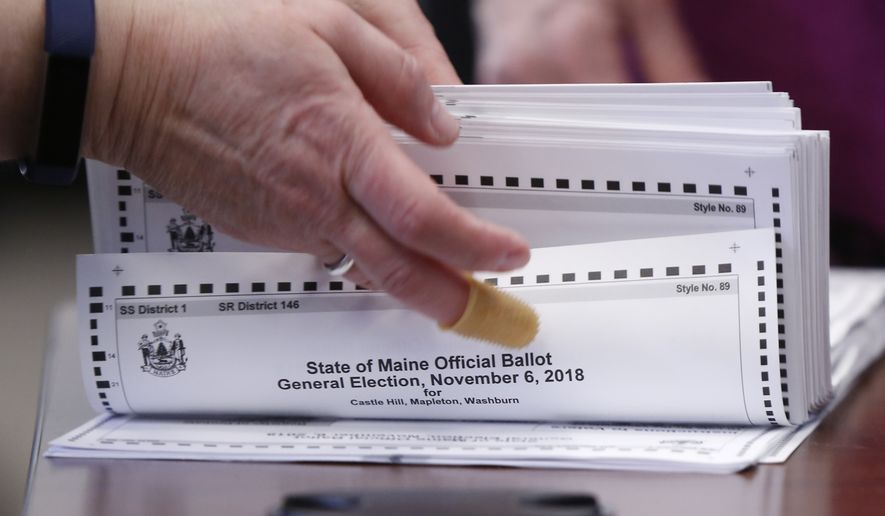OPINION:
Years ago, years and years ago, actually, while attending basic training for the U.S. Army, one of my drill sergeants allowed a couple of the female recruits to cheat on the firearms’ range test and to report more targets than they actually hit.
The awareness that even drill sergeants cheat came as a bit of a shock at the time, not because I was particularly naive — not because my own past was so polly pure that it made it inconceivable to picture anybody cheating — but because, well, these were drill sergeants, for crying out loud. These were the guys who had just spent the previous few weeks teaching, among all the practical soldiering skills, that honesty and integrity and principle meant something — that nobody wanted a battle buddy who couldn’t be trusted.
They were the gate-guards of a system of supposed honor.
What a letdown.
But it brings to mind another story of youth, even earlier, back in high school days, of a police officer stopping me on the highway and giving me a ticket for speeding four miles over the posted limits. Yes, that’s right, four miles — going 59 in a 55. I went to court to fight, but before my case was called, I was summoned to the judge’s office.
I remember he was sitting on top of his desk, his leg dangling off the side, and there was some other guy there, some other member of the court. With a smile and the nicest of tones, the judge proceeded to explain how I wouldn’t win my case, and wonder aloud why I’d even want to fight the ticket, and suggest that perhaps for the good of everybody involved that maybe, perhaps, quite probably, I’d want to just take care of the ticket and go home and avoid the whole bother of having to pay the court fines that I’d most definitely incur when I lost.
So I did.
Who knew that police officers who give tickets that are being contested are required to be in court or automatically see those tickets torn. As a newbie driver and high-schooler, I sure didn’t; you can bet the judge did. That’s why the whole wink-wink, let-me-help-you-out closed-door meeting took place in the first place. The issuing officer hadn’t shown in court.
It wasn’t until some time after paying the ticket that I learned how unethical the judge had actually behaved.
He was the gate-guard of a supposed system of justice and fair play. And again, what a letdown.
So what’s all that got to do with the price of rice in China?
Take a look at what’s going on with these November political races.
You’ve got a Democrat in Georgia refusing to concede, filing a suit to extend the certification deadline. You’ve got races in Florida won by Republicans now headed to recounts demanded by Democrats. You’ve got a race in Arizona that seemed all-in for the Republican but then shifted, days and days after polls closed, to the Democrat. You’ve got courts and recounts and counties with histories of problems at the polls, accusations and conspiracies, heated exchanges and tense televised spats, media buzzing that stokes even more fiery concerns — some due, some undue — and at the end of the day, you’ve got an American public that’s left with a big old pot of mayhem and madness, collectively puzzling a week after elections about who really won.
Can you say banana republic?
Fact is, the systems are crumbling. The gate-guards of principle are way too few and far between, way too quiet to be effective.
And what’s going to result from all this Election Day upset, soon enough, is a major shift in how U.S. elections will be conducted.
It’ll be big wins for the Democrats, for sure — the Democrats, who want to do away with the Electoral College; who want to stretch out voting day into voting week, voting month even, all as a means of causing chaos and confusion and creating opportunities for recounts; who want to take something as principled and true as a voter’s right to vote and turn it into a political tool to bring about constitutional demise. Oh, it’ll bring the left these wins and more, and what’ll happen, one fine day for the happy life of the liberal, is that conservatives just won’t vote. They’ll adopt the “why bother” attitude and simply stay home.
Betrayal, after all, has a way of lingering in the memory banks.
So quickly now, listen up: America’s election process needs to be more transparent and accountable, more disciplined and better managed — and what that means is more people of principle have to fight to get into positions of power, or at least into platforms of influence, to properly gate-guard the system and keep it from crumbling.
Americans, after all, want to believe in the system. Americans need to believe in the system. But the system’s faltering and the trust is tearing. It’s only principle and honor that can save.
• Cheryl Chumley can be reached at cchumley@washingtontimes.com or on Twitter, @ckchumley.




Please read our comment policy before commenting.